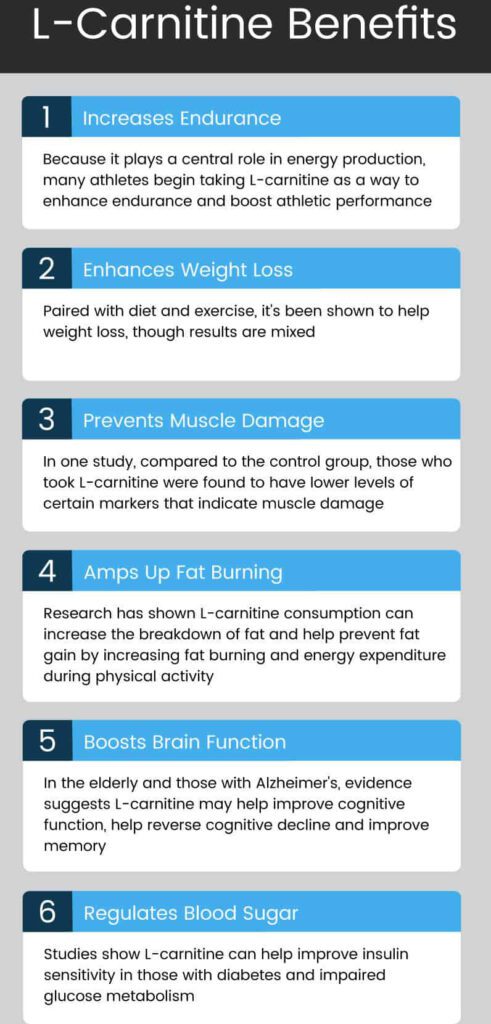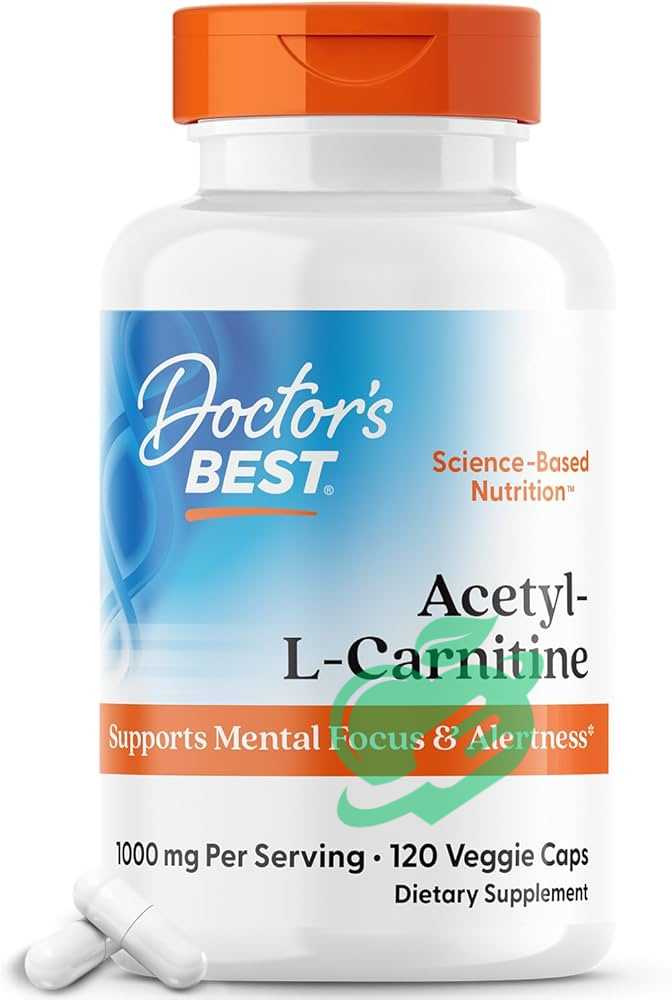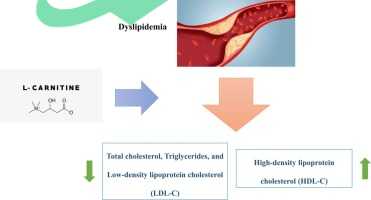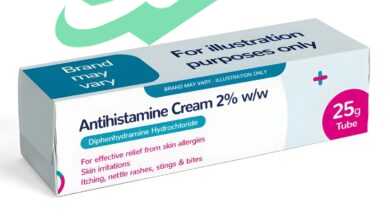
What is Carnitine Deficiency?
Carnitine Deficiency is a natural compound that helps our bodies produce energy. It plays a key role in moving fatty acids into the mitochondria, which is the part of our cells that burns fat for fuel. This process is super important not just for athletes looking to enhance their performance but also for anyone wanting to keep their energy up throughout the day.
You might find it interesting that our bodies can make carnitine from amino acids like lysine and methionine, mainly in the liver and kidneys. But you can also get carnitine through food, particularly from animal products such as meat and dairy. For folks who are vegetarian or vegan, hitting the right carnitine levels can be a bit tricky and might lead to a deficiency.
Read also: Boost Your Health: Combatting Vitamin K Deficiency
What Causes Carnitine Deficiency?
Carnitine deficiency can happen for a few different reasons:
- Genetic Disorders: Some people are born with changes in their genes that make it hard for their bodies to produce carnitine.
- Dietary Insufficiency: If someone follows a strict vegetarian or vegan diet, they might not get enough carnitine since it’s mostly in animal products.
- Kidney Disease: This condition can cause more carnitine to be lost through urine, leading to lower levels in the body.
- Medications: Certain meds can mess with how well the body makes or uses carnitine.
Knowing these causes can help people figure out if they’re at risk of becoming deficient in carnitine.
Symptoms of Carnitine Deficiency
Spotting symptoms of carnitine deficiency is important for getting help in time. Common signs to look for include:
- Fatigue and Weakness: You might feel a big drop in energy, which can mess with your everyday activities.
- Muscle Weakness: This might show up as struggling during workouts or other physical tasks.
- Hypoglycemia: Low blood sugar can cause dizziness or even fainting.
- Cardiomyopathy: In severe cases, heart function can have issues, and that requires medical attention.
If you notice these symptoms in yourself or someone else, it’s really important to talk to a healthcare professional. Getting diagnosed early can be key to treating carnitine deficiency effectively.

Benefits of Carnitine Supplements
After going over carnitine deficiency and its symptoms, we should look at how carnitine supplements can help improve health.
How Do Carnitine Supplements Work?
Carnitine supplements help by improving the transport of fatty acids into the mitochondria, which helps the body turn stored fat into energy. This is especially handy for anyone looking to up their energy levels, whether it’s for working out or just getting through the day.
Interestingly, some folks who take carnitine supplements have said they notice a big difference in their endurance and how quickly they recover after workouts. For example, one runner said that just a few weeks after starting on L-carnitine, he could run longer distances without feeling so tired.
Health Benefits of Carnitine Supplements
Carnitine supplements can offer a bunch of health benefits, like:
- Improved Energy Levels: Better fat metabolism means you have more energy available for physical activities.
- Weight Management: By helping to burn fat better, these supplements can support weight loss efforts.
- Heart Health: Some research suggests that carnitine can boost heart function, especially for those with heart issues.
- Enhanced Recovery: Carnitine helps reduce muscle soreness, leading to quicker recovery after tough workouts.
- Cognitive Function: Some forms, like acetyl-L-carnitine, might help improve mental clarity and focus.
These benefits make carnitine supplements appealing whether you’re really into fitness or just want to take care of your health.
Different Types of Carnitine Supplements
If you’re thinking about taking carnitine supplements, it’s good to know the different types out there:
- L-Carnitine: This is the most common type and is often used for general energy and fat burning.
- Acetyl-L-Carnitine (ALCAR): This version also comes with brain benefits and is linked to better brain health.
- Propionyl-L-Carnitine: This one’s mainly good for heart health and blood flow, making it great for anyone with heart issues.
Picking the right type can boost how effective carnitine supplements work for you.

Diagnosing Carnitine Deficiency
Once you know about the benefits of carnitine and what happens when you don’t have enough, the next step is figuring out how to diagnose this deficiency effectively. Catching carnitine deficiency early can be a game-changer in treatment.
Testing and Diagnosis
Diagnosing carnitine deficiency usually starts with a healthcare provider looking at your symptoms. If they think you might be low on carnitine, there are specific tests they can use to confirm it:
- Blood Tests: A simple blood test can check the levels of different types of carnitine in your system to see if it’s below what it should be.
- Urine Tests: Sometimes urine tests can help analyze carnitine levels and spot any metabolic issues.
- Genetic Testing: If there’s a history of metabolic disorders, they might suggest genetic testing to find any underlying issues with carnitine metabolism.
Since these tests can seem a bit much, it’s often helpful for patients to talk through their options with their healthcare provider.
Consulting a Doctor About Carnitine Deficiency
Going to a healthcare professional if you suspect you might have a carnitine deficiency is key. It’s common for people to think their tiredness or muscle weakness is just from lack of sleep or overdoing it with exercise. However, a good medical checkup can reveal a lot more.
During your visit, the doctor will:
- Look Over Your Medical and Dietary History: Knowing your past health and what you eat helps narrow down the potential causes of deficiency.
- Talk About Symptoms and Concerns: Make sure you share details about your symptoms, as this info can guide the doctor in making good decisions.
- Create a Treatment Plan: If you get diagnosed, your healthcare provider will suggest a treatment plan that might include changing your diet or lifestyle or adding carnitine supplements.
Don’t forget that getting medical help quickly can ease many symptoms linked to carnitine deficiency and boost your overall health. Sharing your experiences with your healthcare team helps create a supportive space for a successful outcome.

Carnitine Supplement Options
As you dive into tackling any possible carnitine deficiency, knowing the different carnitine supplement types can help you figure out what’s best for your needs. Each form has unique benefits, so let’s check them out.
L-Carnitine Supplements
L-carnitine is probably the most popular type of carnitine supplement. Many fitness buffs turn to it because of its energy-boosting effects, especially during workouts.
- Benefits: L-carnitine is mainly known for boosting fat metabolism and helping with weight management. Users often notice they have better endurance and feel less tired during their workouts.
- Usage: You can find it in capsules, powder, or liquid forms, making it super easy to fit into your daily routine. Lots of athletes take L-carnitine before they train to get the most out of it.
For instance, a personal trainer said that adding L-carnitine to her routine improved her performance and helped her bounce back faster.
Acetyl-L-Carnitine Supplements
Acetyl-L-Carnitine (ALCAR) takes the benefits of regular L-Carnitine to the next level. This supplement has added brain-protecting qualities that make it popular with folks wanting to enhance their brain health.
- Benefits: Besides boosting energy metabolism, ALCAR can help improve cognitive function, mental clarity, and mood.
- Usage: Many people like taking ALCAR for brain support and often use it in capsule form as part of their daily supplement routine.
One user mentioned that since they started taking Acetyl-L-Carnitine, they noticed fewer brain fog episodes and felt more focused at work.
Propionyl-L-Carnitine Supplements
Propionyl-L-Carnitine is a type that mainly focuses on heart health and blood flow.
- Benefits: This one’s particularly good for people with heart concerns since it can help improve blood flow and might reduce angina symptoms.
- Usage: You can usually find Propionyl-L-Carnitine in capsule form, and it’s often recommended for people who need heart-related support.
A heart health supporter shared that since he started taking Propionyl-L-Carnitine, he felt a boost in his energy levels and overall wellness.
Understanding the different carnitine supplements out there can help you make choices that fit your health goals and lifestyle better.

Dosage and Usage Guidelines
Now that you know about the different carnitine supplements available, it’s key to learn how to use them properly. Knowing the right dosages and how to fit them into your routine while being aware of potential side effects can help you make good choices.
Recommended Dosages
When it comes to taking carnitine, how much you should take can depend on your needs and health goals. Here’s a general idea of what’s recommended:
- L-Carnitine: Typical dosages range from 500 mg to 2,000 mg a day. Athletes often do well with around 1,000 mg before their workouts.
- Acetyl-L-Carnitine (ALCAR): Normal dosages are between 600 mg to 2,500 mg daily, often split up for better brain support.
- Propionyl-L-Carnitine: Recommended amounts typically fall between 500 mg to 2,000 mg per day, especially for people with heart issues.
Always talk to a healthcare professional before starting any supplement to make sure you’re taking the right amount for your needs.
Read also: How does diabetes affect your mood?
How to Fit Carnitine Supplements into Your Routine
Adding carnitine supplements to your daily life is pretty easy. Here are some tips:
- With or Without Food: Many people find that taking carnitine on an empty stomach works best for absorption. However, some prefer having it with meals to avoid upset stomachs.
- Timing Matters: It’s good to think about when to take your carnitine; taking it around 30 minutes before exercise can pay off in performance. If you’re using acetyl-L-carnitine for cognitive benefits, having it in the morning can help you stay sharp.
For example, one athlete said that creating a pre-workout routine with L-Carnitine helped her mindset before hitting the gym.
Possible Side Effects and Risks
While carnitine supplements are generally safe, it’s still important to keep an eye out for any side effects. Some common ones might include:
- Gastrointestinal Discomfort: This can mean issues like nausea, diarrhea, or stomach cramps, especially when taken in high doses.
- Fishy Body Odor: A rarer side effect that can occur when there’s a high level of trimethylamine in the body.
Always listen to how your body feels. If you notice any unusual symptoms, it’s a good idea to check in with a healthcare provider. Being aware and using carnitine responsibly helps you take advantage of its benefits while keeping risks low.
Lifestyle Changes to Support Carnitine Levels
On top of taking supplements, making some lifestyle changes can help enhance carnitine levels in your body. Focusing on what you eat, getting more exercise, and managing stress can all support better health.
Dietary Recommendations
A balanced diet that includes foods high in carnitine is super important for keeping levels up. Here are some dietary tips:
- Incorporate Animal Products: Foods like red meat, poultry, fish, and dairy are great sources of carnitine. For example, just 3 ounces of beef can provide around 60–120 mg of carnitine.
- Focus on Nutrient-Dense Foods: Besides carnitine-rich foods, make sure to fill your meals with fruits, veggies, whole grains, and healthy fats to boost overall metabolic health.
- Consider Plant-Based Options: For vegetarians or vegans, it’s crucial to supplement with L-carnitine since plant foods have much lower levels. Foods like avocados, soy products, and nuts can help round out your nutrient intake.
One vegetarian noted that after being mindful of her diet and adding a carnitine supplement, she felt more energized and focused throughout the day.
Exercise and Physical Activity
Getting active plays a big role in supporting carnitine levels:
- Regular Aerobic Exercise: Exercises like running, cycling, or swimming can boost fat burning and increase the body’s need for carnitine. Regular workouts can promote more production of carnitine.
- Strength Training: Lifting weights not only helps your overall metabolism but also supports mitochondrial function, whereas carnitine supports energy production.
An avid cyclist said that adding strength training to his routine boosted his performance and energy during long rides.
Stress Management and Sleep
Managing stress and getting good sleep can also help with carnitine utilization:
- Practice Stress-Reduction Techniques: Things like yoga, meditation, or deep breathing can help lower stress levels and support better metabolic functioning.
- Prioritize Sleep: Aim for 7-9 hours of quality sleep each night to help with recovery, hormonal balance, and overall health.
For example, one person shared that sticking to a solid sleep schedule and practicing mindfulness cut down her anxiety, helping her feel more energized and focused throughout her day.
Making these lifestyle changes can significantly help improve your carnitine levels and boost your overall health, supporting a more active and healthier life.

Case Studies and Success Stories
Seeing the benefits of carnitine supplements in real-life examples can bring things to life. Looking at the journeys of people who’ve successfully managed carnitine deficiency can provide valuable insights and encouragement.
Read also: 5 causes of tooth decay that you should treat
Real-Life Experiences
Take Sarah, a busy professional in her thirties who had been feeling worn out and weak. After checking in with her doctor, she found out she had a carnitine deficiency. Sarah decided to tackle this with both supplements and lifestyle changes.
She started adding L-carnitine to her daily routine while also focusing on eating a balanced diet full of lean meats and dairy. On top of that, Sarah set up a regular exercise plan that included both cardio and strength workouts.
Another inspiring story comes from Tom, a marathon runner. Even with his hard work, he had a tough time with recovery and endurance. After some research, he decided to start taking Acetyl-L-Carnitine and also changed his diet and sleep habits.
Results and Outcomes
Both Sarah and Tom saw impressive changes after fully committing to their plans:
- Sarah: Within a few weeks, she noticed her energy levels went up and her focus improved at work. She also found that her muscle fatigue dropped off, letting her enjoy outdoor activities with friends and family again. Sarah felt “like a new person,” thanks to simple lifestyle changes and those carnitine supplements.
- Tom: After using Acetyl-L-Carnitine for a few months and improving his diet, he noticed he could run longer and complete a marathon with better results, feeling less sore afterward.
These success stories show just how powerful carnitine supplements can be, especially when paired with diet and lifestyle changes, making a real impact on health and fitness journeys. Sarah and Tom’s experiences offer hope and valuable strategies for those dealing with similar challenges.
Conclusion and Recommendations
Wrapping things up on carnitine and its importance, it’s clear there are many benefits to understanding and managing carnitine deficiency effectively. The path to better health often includes a mix of supplements, dietary shifts, and lifestyle tweaks.
Summary of Benefits
Carnitine supplementation can provide lots of perks for those looking to lift their energy levels, boost performance, and enhance general health. Here are some key benefits:
- Increased Energy Levels: Carnitine helps move fatty acids into cells for energy production, aiding in beating fatigue and boosting physical performance.
- Improved Recovery Time: For athletes and active folks, carnitine can help reduce muscle soreness and speed up recovery after workouts.
- Cognitive Benefits: Certain forms like acetyl-L-carnitine have potential mental clarity and mood-enhancing effects, making daily tasks easier.
Through stories from individuals like Sarah and Tom, it’s clear that incorporating carnitine can lead to impressive changes, fostering a healthier and more vibrant lifestyle.
Tips for Choosing Carnitine Supplements
When picking out carnitine supplements, consider these tips to make an informed choice:
- Talk to a Healthcare Provider: Before starting any supplement, it’s smart to consult a healthcare professional. They can help find the right type and dosage based on your needs.
- Research Quality Brands: Look for trusted brands that are clear about their ingredients and how they make their products. Checking for third-party testing can help ensure quality.
- Know the Types: Understand which type suits your goals best—whether it’s L-Carnitine for energy, Acetyl-L-Carnitine for cognitive support, or Propionyl-L-Carnitine for heart health.
By following these recommendations and insights, you can make proactive choices for better health and increased well-being through effective carnitine supplementation. With the right knowledge and support, reaching your health goals is doable.
How to treat carnitine deficiency?
L-carnitine supplements are the go-to treatment for this. They help with a bunch of symptoms. If you don’t treat carnitine deficiency, it can cause some serious heart and liver problems. You might also want to steer clear of things that can trigger symptoms like skipping meals or overdoing exercise. 1
Does vitamin C help carnitine?
Vitamin C (ascorbic acid) inhibits oxidative damage, recycles other antioxidants, facilitates iron absorption, aids in the conversion of cholesterol to bile acids, and is also an essential cofactor for enzymatic reactions required for the synthesis of carnitine, collagen, norepinephrine, and epinephrine. 2
Is there a carnitine supplement?
Carnitine comes in different forms as a supplement. There’s L-carnitine which is the most common and pretty affordable. Then you’ve got acetyl-L-carnitine, which is usually used in research for Alzheimer’s and other brain issues. Lastly, there’s propionyl-L-carnitine, often studied for heart problems and blood circulation issues. 3
What foods are high in carnitine?
Red meat tops the charts when it comes to carnitine. For example, a 4-ounce beef steak can pack around 56 to 162 mg of it. You can also find smaller amounts of carnitine in chicken, milk, dairy, fish, beans, and even avocados. 4
To stay up to date on the latest health and nutrition developments in the United States, visit our website, Power Up Your Health, and gain more tips and solutions for a healthier life.
- cedars-sinai ((↩))
- sciencedirect ((↩))
- mountsinai ((↩))
- WebMD ((↩))



